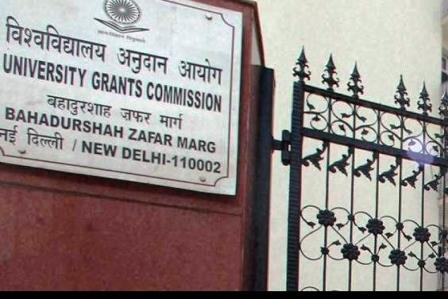NEW DELHI: In a major shift in the process of appointment of heads in the higher educational institutions (HEIs), the University Grants Commission (UGC), in its latest draft regulations, has suggested more powers to the state Governors in appointing Vice-Chancellors of universities.
The guidelines advocates that the Vice-Chancellor posts, for which academicians are appointed now, should be opened for industry experts and public sector veterans.
Union Education Minister Dharmendra Pradhan recently launched the draft ‘UGC(Minimum Qualifications for Appointment and Promotion of Teachers and Academic Staff in Universities and Colleges and Measures for Maintenance of Standards in Higher Education) Regulations, 2025. The draft is now in the public domain for eliciting suggestions, feedback and consultation.
The draft regulations, if approved in its present form, will give Governors, who are also Chancellors of the university, more control over selection to the Vice-Chancellor posts.
This will likely to have significant impact as disputes between the governments of Opposition-ruled states such as Tamil Nadu, West Bengal, and Kerala and their respective Governors over the appointment of top academic posts hit the headlines time and again.
Search-cum-selection committee
The new draft regulations have also suggested removal of the cap on contract teacher appointments. The earlier regulations in 2018 limited such appointments to 10% of an institution’s total faculty posts.
“The Chancellor shall constitute the search-cum-selection committee comprising three experts for Vice=-Chancellors posts,” suggest the new regulations. Earlier, the regulations mandated selection of Vice-Chancellors by a panel of 3–5 persons formed by a search-cum-selection committee but did not specify who would constitute the committee.
Another key change in the draft regulations is that university Vice-Chancellors need not be professors, but can be individuals at senior levels in industry, public policy, public administration, or public sector undertakings.
No API system
The draft regulations also suggest doing away with the Academic Performance Indicators (API) system– a score that determines the recruitment and promotion of teachers based on parameters such as publication in journals—as an eligibility criterion for selection. Instead, “notable contributions” across nine categories are to be considered for recruitment and promotion of teachers, including “teaching contributions in Indian languages” and “teaching-learning and research in Indian Knowledge Systems.”
UGC Chairman M Jagadesh Kumar, in a recent interview said that the API system “heavily relied on quantitative metrics, reducing academic performance to numerical scores.”
Notable contributions
Other notable contributions to be considered are innovative teaching, research or teaching lab development, consultancy or sponsored research funding as a principal investigator or co-principal investigator, student internship or project supervision, digital content creation for massive open online courses (MOOCs), community engagement and service, and a “startup”, registered with the Registrar of Companies as “a founding promoter, successfully raising funding through government, angel or venture funds to support the startup.”
Kumar said the subject experts in the selection committee for these hirings will evaluate the notable contributions “in a transparent way as decided by the selection committee.”
V-C’s eligibility
Earlier regulations had it that the V-C should be a “distinguished academician”, with a minimum of 10 years of experience as a Professor in a University or ten years of experience “in a reputed research and/or academic administrative organisation with proof of having demonstrated academic leadership.”
The new draft regulations say that the V-C candidate is to be a “distinguished person possessing high academic qualifications and demonstrated administrative and leadership capabilities”, with a minimum of ten years of experience as a professor in a higher educational institutions, or at a senior level in reputed research or academic administrative organisations, or at a senior level in industry, public administration, public policy and or public sector undertakings, with a “proven track record of significant academic or scholarly contributions.”
On doing away with the cap on appointments of contract teacher, Kumar said that it was done away with “to give some flexibility to higher educational institutions considering the fact that in many state universities, there are many faculty vacancies and they are making efforts to fill them up.”
“Once the state governments fill up the vacancies, contract basis appointments are expected to be less,” he said.
Multi-disciplinary approach
The conditions for appointment of teachers in the draft regulations say that if the candidate’s subject at the UG or PG level is different from PhD subject, the candidate will be considered eligible for appointment as a teacher in the subject in which they obtained the PhD.
Additionally, if the candidate’s subject at the UG or PG level is different from their subject in qualifying exams like the NET or SET, the candidate will be eligible for appointment as a teacher in the subject in which they qualified in these exams.
ALSO READ: UGC Recommends Removal Of NET As A Criterion For Assistant Professor Posts
UGC Develops New System To Evaluate Institutes Based On NEP 2020
UGC All Set to Revise Norms For Recruitment Of Faculty In Colleges And Universities


Comments are closed.